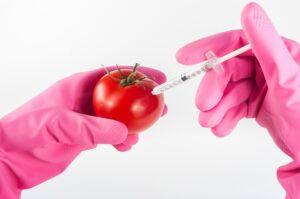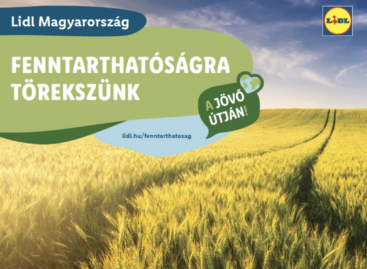Pesticide residues in EU food: we have the latest data
EFSA has published its report on pesticide residues in European Union food. In 2021, a total of 87,863 food samples were collected in the European Union. The analysis of the results shows that 96.1% of the samples were below the permissible level. 97.9% of the 13,845 samples analyzed during the EU-coordinated control program (EU MACP) met the legal limits.

(Photo: Pixabay)
Within the framework of the EU MACP, randomly collected samples from 12 foods were tested in the laboratory. In 2021, these were eggplant, bananas, broccoli, cultivated mushrooms, grapefruit, melons, peppers, table grapes, virgin olive oil, wheat, beef fat, and chicken eggs.
Among the samples analyzed in the coordinated program:
• 58.1% (8,043 samples) can be considered free of chemical residues;
• 39.8% (5507) contained one or more chemical residues in a concentration below or equal to the permissible level (this is the so-called maximum permissible pesticide residue level, or MRL);
• 2.1% (295) contained substance residues exceeding the permitted level.
The experts sample the same range of products every three years, thus the decreasing or possibly increasing trend can also be well examined.
The general proportion of pesticide residues exceeding the MRL increased from 1.4% in 2018 to 2.1% in 2021
Excluding grapefruit, the average MRL exceedance rate in 2021 was 1.4%, the same as in 2018. In 2021, the member states drew attention to the fact that grapefruits imported from outside the EU have a higher presence of pesticide residues, which is why the European Commission increased border controls in this regard in the same year.
The report shows that the food products analyzed in 2021 are unlikely to pose a threat to the health of consumers. Nevertheless, the authority’s report also contains a number of recommendations to increase the efficiency of European control systems for pesticide residues.
Nébih
Related news
AM: the Szupermenta product test program provides additional information for purchase
The National Food Chain Safety Office (Nébih) Szupermenta product test…
Read more >The Ministry of Agriculture has issued a notice on the use of ENAR data in support policy
In the case of animal-based subsidies financed from EU funds,…
Read more >Farmer-centric agricultural policy after 2027 receives unanimous support
The EU member states’ agriculture ministers have adopted Council conclusions…
Read more >Related news
After a subdued year, the holiday season is strong
74% of online shoppers, around 3.1 million people, are preparing…
Read more >Lidl has published its 3rd sustainability report
Lidl Hungary’s sustainability report for the 2022/2023 business years has…
Read more >Battle of the regions: these are the most popular dishes according to Hungarians
Five times the national average of Mexican food is consumed…
Read more >








